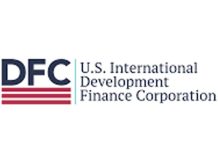The Nigerian Upstream Petroleum Regulatory Commission (NUPRC) has announced that the country’s crude oil production has risen to an average of 1.75 million barrels per day (BOPD), with gas production reaching 7 billion standard cubic feet per day (SCFD).
This marks a significant recovery from the drastic drop to 1.1 million BOPD in 2022, largely caused by oil theft and other challenges.
Gbenga Komolafe, Commission Chief Executive of NUPRC, disclosed this during the Renewed Hope Global Town Hall Conference in Abuja, where he outlined reforms and achievements in Nigeria’s oil and gas sector. He attributed the production rebound to a combination of kinetic and non-kinetic interventions, which have reduced oil theft to 5,000 BOPD.
“Through strategic measures, we have successfully curbed oil theft and stabilized production, which now stands at 1.75 million BOPD,” Komolafe stated. “Looking ahead, the government aims to increase production by an additional 1 million BOPD by December 2026 under the Project 1 MMBOPD initiative. This will be achieved through collaboration among operators, service providers, financiers, and host communities.”
Komolafe highlighted the transformative impact of the Petroleum Industry Act (PIA) of 2021, which has enabled NUPRC to implement key reforms aimed at enhancing regulatory effectiveness and attracting investments. In May 2023, the commission unveiled its 10-year Regulatory and Corporate Strategic Plan (2023–2033), followed by a Regulatory Action Plan for 2024, focusing on increasing oil and gas reserves, improving hydrocarbon accounting transparency, and promoting cost efficiency and decarbonization in upstream operations.
Nigeria, Africa’s second-largest oil reserve holder and largest gas reserve holder, boasts estimated oil reserves of 37.5 billion barrels and gas reserves of 209 trillion cubic feet (TCF). Komolafe emphasized the country’s strategic position in the global energy market, stating, “Africa accounts for five of the world’s top oil-producing countries, and Nigeria is at the forefront of this landscape.”
The Nigeria Gas Flare Commercialization Programme (NGFCP) was also highlighted as a cornerstone of the country’s energy transition strategy. The initiative aims to eliminate routine gas flaring, reduce methane emissions, and promote carbon capture technologies. Komolafe noted that NUPRC has implemented stringent regulations on hydrocarbon metering, fiscal oil price determination, and cargo declaration systems to curb revenue leakages and crude oil theft.
In addition to production and regulatory reforms, NUPRC has prioritized host community engagement and conflict resolution. The commission has incorporated 137 Host Community Development Trusts (HCDTs) to foster local participation and stability in oil-producing regions. An Alternative Dispute Resolution Centre (ADRC) has also been established to address conflicts efficiently, minimizing disruptions to oil and gas operations.
Komolafe reaffirmed Nigeria’s readiness for business, citing the government’s commitment to regulatory certainty, investment-friendly policies, and global competitiveness. “With a stable political environment, a growing gas economy, and a clear roadmap for energy transition, Nigeria is positioning itself as a prime destination for energy investments in Africa,” he said.
He concluded by reiterating NUPRC’s dedication to collaborating with global investors, financiers, and energy stakeholders to unlock Nigeria’s full hydrocarbon potential while driving sustainable development.
As the country continues to recover and expand its oil and gas production, the NUPRC’s initiatives underscore Nigeria’s ambition to strengthen its role as a key player in the global energy market.












